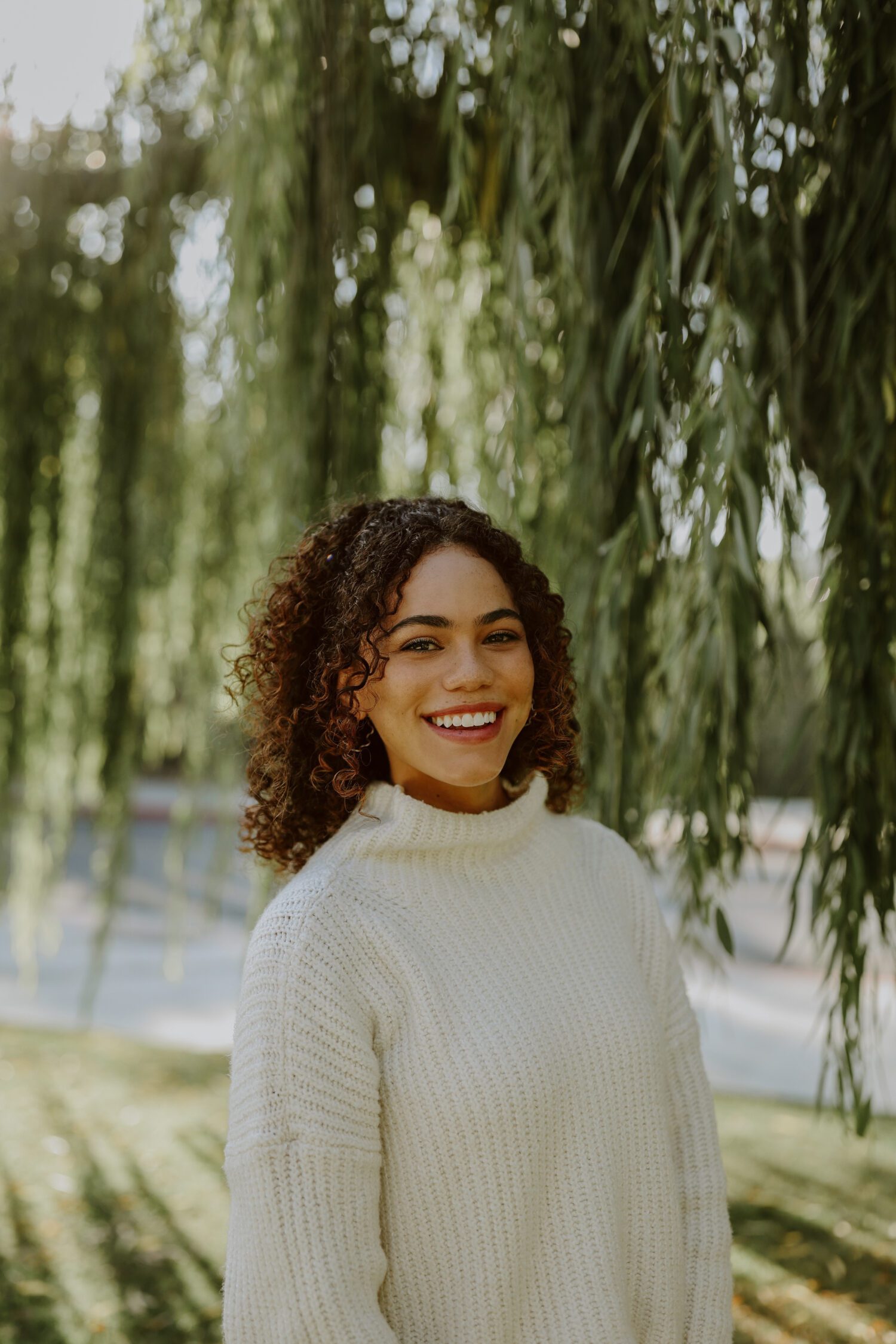Gabby Olk '25 Helps Represent National Forests in USDA Internship

Gabby Olk ’25 has been working this summer with the USDA’s Natural Resources and Environment Division, which represents the U.S. Forest Service.
UC Law SF student Gabby Olk ’25 is helping represent the nation’s forests through an internship with the U.S. Department of Agriculture (USDA) this summer. Olk, who grew up in Washington D.C., returned to her hometown to work for the USDA Office of General Counsel in the Natural Resources and Environment Division. The division’s main client is the U.S. Forest Service.
Olk talks about her internship and the work she’s been doing this summer.
Q: What have you been doing in your internship?
A: This summer I have been drafting memos, interpreting statutory language, and reviewing legislative drafts in coordination with Congress. I have researched issues related to emergency consultations required under the Endangered Species Act. I also investigated laws surrounding a dispute with the U.S. Department of Defense over its cleanup of hazardous materials at a U.S. national forest site. Additionally, I’ve been looking into the potential consequences of a U.S. Supreme Court case that could weaken Chevron deference, a legal doctrine that gives government agencies more power to interpret ambiguous laws. I helped determine what steps the Forest Service must take to maintain hundreds of conservation easements it holds in numerous states and territories. I’ve also looked into how climate change might affect these easements, with rising sea levels causing land to get submerged under water. I was especially excited to help review an important piece of environmental legislation and how it might affect the interests of the Forest Service, and I got to sit in on meetings with U.S. senators.
Q: Why is this work important?
A: My work is important because my office is essentially the attorneys for our country’s forests (which I think is pretty cool). In addition to utilizing the law to conserve our shared natural environments, my work is important because the USDA places a huge focus on optimizing community benefits of conservation such as protecting Indigenous rights, being mindful of environmental justice issues, and creating forward-thinking policy initiatives to accommodate a changing natural landscape.
Q: How will this help advance your career goals?
A: This experience is helping me prepare for the future by exposing me to the professional world. I have learned what a public service job requires in terms of expectations and assignments. It is helpful preparation because I am now more proficient at writing memos, conducting legal research on ambiguous issues, and using critical thinking to assist in reviewing legislation.
Q: What do you think of public-interest grants for summer internships?
A: I received a grant from the Hastings Public Interest Law Foundation (HPILF), which enabled me to get a stipend for work that would otherwise be unpaid. I think HPILF is important because a lot of public-interest jobs don’t pay their summer interns. Public-interest interns make important contributions, and these grants can encourage law students to take on roles that involve helping the environment and their community.
The grants are made possible thanks to money raised by HPILF and funds donated by alumni and allocated by Chancellor & Dean David Faigman.
Q: Talk more about yourself.
A: I went to San Diego State University for undergrad and got my bachelor’s degree in psychology, philosophy, and rhetoric because I originally planned on being a therapist. However, the Australian bushfires in 2019 prompted me to pursue environmental law. I have a passion for species conservation, climate change, and policy work.
Because I graduated from undergrad a semester early, I was able to backpack parts of Europe and South Asia for four months before beginning law school. Although I am still open to all opportunities, I would love to get the chance to join the Peace Corps or work internationally after law school.